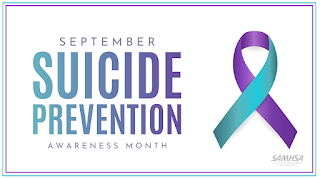Helping Children Manage Distress
Like many of you, I closely followed the breaking news coverage from Charlotte last night, as peaceful protests following a police shooting later became violent. The situation in Charlotte is – unfortunately – only the latest in what seems like a never-ending cycle. With the extensive media access that is now available to all of us 24 hours a day, 7 days a week, it would be understandable for anyone to feel overwhelmed with the endless stream of information delivered to our inboxes, smart phones, televisions, tablets, etc. In the 10 days since the anniversary of 9/11, news headlines locally and nationally have included acts of terrorism in Minnesota, New York and New Jersey, ongoing racial tensions and strained relationships between police and community - and let's not even mention politics.
If current events are stressful for us as adults,then it's a safe bet that some children may also be feeling hurt, scared or confused.
This summer, we shared with you a resource from the National Association of School Psychologists in response to the Orlando shootings. In light of current events, we wanted to provide you with some additional resources to help with those crucial conversations. As many of these authors share, just because children aren't talking about these events doesn't mean they're not thinking about them.
There are some common recommendations across these materials, including: making time to listen, monitoring your child for signs of distress, reassuring your child that he or she is safe, acknowledging that you may not have all of the answers, focusing on positive steps to take and reinforcing hope, limiting/supervising media access (including social media) and maintaining familiar routines. We hope that you find this information helpful. If you feel that your child needs additional support, Winston-Salem/Forsyth County Schools student services personnel are here to help.
SAMHSA: Coping in the Wake of Violence
NASP: Statement on Recent Acts of Violence
APA: Helping Children Manage Distress
Common Sense Media: Explaining the News to Our Kids
Talking to Kids About Violence, Racism and Law Enforcement
If current events are stressful for us as adults,then it's a safe bet that some children may also be feeling hurt, scared or confused.
This summer, we shared with you a resource from the National Association of School Psychologists in response to the Orlando shootings. In light of current events, we wanted to provide you with some additional resources to help with those crucial conversations. As many of these authors share, just because children aren't talking about these events doesn't mean they're not thinking about them.
There are some common recommendations across these materials, including: making time to listen, monitoring your child for signs of distress, reassuring your child that he or she is safe, acknowledging that you may not have all of the answers, focusing on positive steps to take and reinforcing hope, limiting/supervising media access (including social media) and maintaining familiar routines. We hope that you find this information helpful. If you feel that your child needs additional support, Winston-Salem/Forsyth County Schools student services personnel are here to help.
SAMHSA: Coping in the Wake of Violence
NASP: Statement on Recent Acts of Violence
APA: Helping Children Manage Distress
Common Sense Media: Explaining the News to Our Kids
Talking to Kids About Violence, Racism and Law Enforcement



Comments
Post a Comment